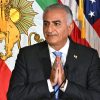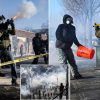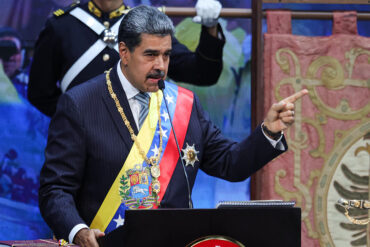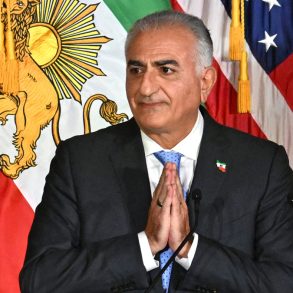A Covert Push to End Venezuela’s Authoritarian Grip
President Donald Trump has authorized the CIA to undertake covert operations against Venezuelan strongman Nicolás Maduro, a move designed to shatter the regime’s stranglehold on power and its deep entanglement in narcotics trafficking. According to U.S. intelligence officials, Trump signed a presidential “finding” empowering the agency to carry out aggressive measures that could lead to Maduro’s removal. While not explicitly ordering regime change, the document allows the CIA to “take actions that could lead to that outcome.”
The authorization comes as U.S. forces expand their presence across the Caribbean, signaling what Trump called an “armed conflict against international drug traffickers.” American warships, fighter jets, and special operations units have surrounded the region, while CIA personnel are being surged into neighboring countries to collect intelligence and undermine the Venezuelan regime’s power structure.
When pressed on whether the United States was seeking to “take out” Maduro, Trump refused to confirm or deny, saying only, “That would be a ridiculous question for me to answer. But I think Venezuela is feeling the heat.”
Why Maduro Is in Washington’s Crosshairs
Maduro’s regime has earned its place as one of the most corrupt and repressive governments in the world. The United States has accused him of running a criminal enterprise known as the Cartel of the Suns, a network of Venezuelan generals and intelligence officials trafficking cocaine throughout Latin America. The Justice Department has offered a $50 million bounty for Maduro’s arrest, labeling him a “narco-terrorist and fugitive from American justice.”
Under Maduro, Venezuela has descended from the wealthiest nation in Latin America to an economic wasteland. Once rich from oil exports, the country’s GDP per capita has plummeted to just $1,571—barely above North Korea’s. Hyperinflation, food shortages, and blackouts have driven more than eight million Venezuelans to flee.
The regime clings to power through brutal repression and a sham electoral system. In the most recent election, Maduro barred opposition candidates, manipulated voter rolls, and used the food supply to coerce loyalty. Independent observers found that opposition candidate Edmundo González actually won by a landslide, yet Maduro declared victory and unleashed “Operation Knock-Knock,” a nationwide crackdown that resulted in over 2,000 arrests.
“This is the power of socialism and the totalitarianism that comes with it,” one analyst noted, “where the richest country in the hemisphere becomes almost the poorest.”
Trump’s Campaign Against the Narco-State
Trump’s stance on Venezuela reflects his belief that the Maduro regime is not merely authoritarian—it is criminal. “Venezuela was the worst abuser of open-border policies under Biden, sending prisoners and the mentally ill into our country,” Trump said. “And the other thing is drugs. We have a lot of drugs coming in from Venezuela.”
The president’s directive has already translated into military action. U.S. strikes in the Caribbean have destroyed boats allegedly carrying narcotics, killing more than two dozen traffickers. Trump defended the operations, saying, “They were trafficking deadly poison to our shores. I authorized it to protect the American people.”
The Pentagon has deployed the Army’s elite 160th Special Operations Aviation Regiment—known as the “Night Stalkers”—to the region. These pilots, famed for their daring missions in Iraq, Afghanistan, and the 2011 raid on Osama bin Laden, are operating from bases near Venezuelan waters. Their presence has fueled speculation that the U.S. could soon attempt precision strikes or targeted extractions inside Venezuela.
Maduro’s Response: Fear, Bluster, and Repression
Maduro has responded with defiance, calling the CIA’s operations an “orchestrated coup d’état” and mobilizing militias to prepare for war. State television shows elderly civilians training with rifles as the dictator declares, “The people are ready for combat.” Yet experts say Venezuela’s military is riddled with corruption, short on equipment, and low on morale.
Still, the regime’s paranoia is palpable. Maduro has ordered mass arrests, canceled passports of journalists, and deployed secret police to hunt down dissidents. “There will be no forgiveness this time,” he warned. Human rights groups report that Venezuelans are now afraid to even carry phones for fear that police will find anti-regime messages and detain them.
Despite Maduro’s bravado, his regime is teetering. Former officials who once served under him have fled or turned against him, exposing the inner rot of a government sustained by drug money and fear.
A Nation in Ruins
Venezuela’s economic collapse is nearly total. Oil production, once the backbone of its wealth, has fallen by 40 percent since 2015. Infrastructure lies in ruin, and families survive on remittances from relatives abroad. More than a third of Venezuelan households now depend on money sent from exile.
“The migration is going to multiply enormously,” warned pollster Jesús Seguias. “People have lost faith that anything can change.”
For Venezuelans like 28-year-old Frankmer Valera, who once believed in reform, Maduro’s latest “victory” was the breaking point. “There’s no future here,” he said before leaving for Colombia. Others echo the same despair. “Living here is to live with pain, sadness, bitterness,” said José Mago, a father of five who plans to join his daughter in New York.
International condemnation has been swift. The United States and much of Europe now recognize Edmundo González as Venezuela’s legitimate president. Even left-leaning governments in Mexico, Brazil, and Colombia have demanded that Maduro release the true election tallies. Yet Maduro continues to insist that the CIA, Trump, and “foreign imperialists” are conspiring to overthrow him.
Regional leaders like Brazil’s President Lula da Silva have warned against escalation, while others argue that only external pressure can end Venezuela’s nightmare. “If there was a probability of U.S. military action radar, it’s past seventy-five percent,” said Eva Golinger, a former adviser to Hugo Chávez.
As one U.S. defense analyst put it, “Maduro’s days are numbered. Either the military removes him, or the United States will.”
The Collapse of a Socialist Dream
Venezuela’s fall from prosperity to desolation stands as a cautionary tale of what happens when ideology replaces accountability. Once the jewel of Latin America, the nation now mirrors the isolation and misery of North Korea—ruled by fear, sustained by propaganda, and looted by elites.
Trump’s support for the CIA marks the most forceful American intervention yet to confront that reality. Whether it leads to freedom or deeper conflict remains uncertain. But for millions of Venezuelans watching their homeland crumble, one thing is clear: the time for illusions has passed, and the battle for Venezuela’s future has begun.
NP Editor: Socialism always seems to go this direction.







